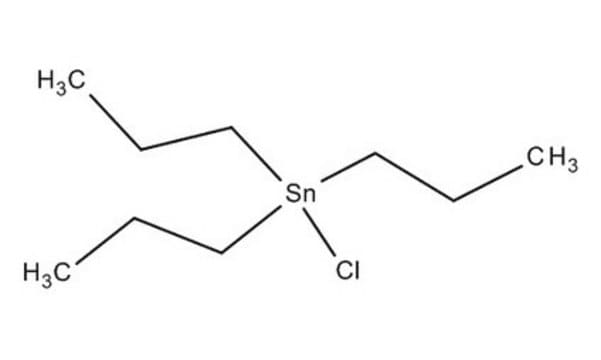41062
Sodium tetrapropylborate
for GC derivatization, LiChropur™, ≥85.0% (T)
Synonim(y):
NaBPr4
About This Item
Polecane produkty
klasa czystości
for GC derivatization
Poziom jakości
Próba
≥85.0% (T)
Postać
solid
jakość
LiChropur™
przydatność reakcji
reagent type: catalyst
core: boron
reagent type: derivatization reagent
reaction type: Alkylations
metody
gas chromatography (GC): suitable
ciąg SMILES
CCC[B-](CCC)(CCC)CCC.[Na+]
Powiązane kategorie
Opis ogólny
Zastosowanie
Informacje prawne
produkt powiązany
Hasło ostrzegawcze
Danger
Zwroty wskazujące rodzaj zagrożenia
Zwroty wskazujące środki ostrożności
Klasyfikacja zagrożeń
Pyr. Sol. 1 - Water-react 2
Kod klasy składowania
4.2 - Pyrophoric and self-heating hazardous materials
Klasa zagrożenia wodnego (WGK)
WGK 3
Temperatura zapłonu (°F)
Not applicable
Temperatura zapłonu (°C)
Not applicable
Choose from one of the most recent versions:
Certyfikaty analizy (CoA)
Don't see the Right Version?
If you require a particular version, you can look up a specific certificate by the Lot or Batch number.
Masz już ten produkt?
Dokumenty związane z niedawno zakupionymi produktami zostały zamieszczone w Bibliotece dokumentów.
Nasz zespół naukowców ma doświadczenie we wszystkich obszarach badań, w tym w naukach przyrodniczych, materiałoznawstwie, syntezie chemicznej, chromatografii, analityce i wielu innych dziedzinach.
Skontaktuj się z zespołem ds. pomocy technicznej








